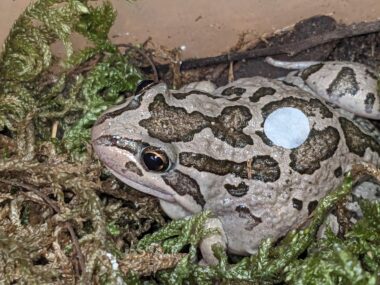· Evensong service at St Pauls Cathedral, Melbourne, Sunday 16 July, 4 pm
· How faith can speak to being humans of the future, a one-day conference, Saturday 22 July.
I am writing to invite you to a special Evensong at St Pauls this Sunday celebrating science and faith. It marks the opening of the International Genetics Congress where 1,700 delegates from 50 countries will gather to discuss the genetics revolution and it’s impact on almost everything.
And, next Saturday there is a conference exploring how faith can speak to being humans of the future.
You can read more about the Congress at: https://www.scienceinpublic.com.au/genetics and the full Congress program https://www.icg2023.com.au
And here is more information about the two religious events:
Evensong for Genetics: Sunday 16 July 4pm
Some may be surprised to learn that a significant opening event of the XXIIIrd International Congress of Genetics is an Evensong worship service celebrating science and faith in Saint Paul’s Anglican Cathedral in the heart of Melbourne. But it makes sense.
Modern genetics has had a profound impact on how we think about ourselves, life, and the biological world around us. And it has given us powerful tools to alter individuals and species.
It has led to much concern and debate about how our newfound knowledge should be applied and regulated. Christianity’s long study of ethics and morality can provide useful ideas. Evensong is a service sung in Anglican churches throughout the world and serves as a quiet reflection at the end of the day.
The service to welcome the Congress is open to all and there will be a sermon by Archbishop Philip Freier. It is jointly hosted by the cathedral and the Institute for the Study of Christianity in an Age of Science and Technology (ISCAST), the oldest and largest science and religion organisation in Australia.
Archbishop Freier holds a Bachelor’s degree in Applied Science and is a longstanding supporter of science-faith dialogue. In 2009 he spoke at another special service at the cathedral, celebrating Charles Darwin’s 200th birth anniversary.
- Find out more at: https://iscast.org/science-faith-evensong
The Scientific & Spiritual Human: Saturday 22 July
This is a one-day conference exploring how faith can speak to being humans of the future (gene editing, human enhancement, etc.), and humans of the Earth (biodiversity, caring for the planet, etc).
- More information: https://www.icg2023.com.au/the-scientific-spiritual-human.
Contact details:
For accreditation and interviews contact Niall Byrne, [email protected], 0417-131-977, or Sarah Brooker, [email protected], 0413-332-489.
Full Congress program at https://www.icg2023.com.au
Public program details at https://www.icg2023.com.au/public-program
Media releases at https://www.scienceinpublic.com.au/genetics


